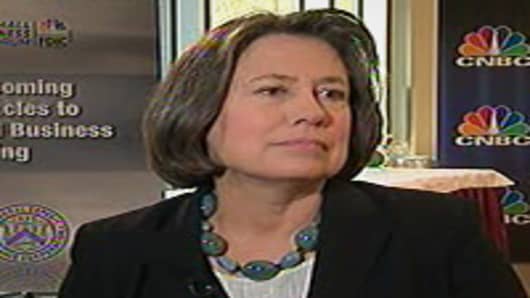A fundamental clash of philosophies ran throughout the response to the financial crisis, Sheila Bair, former head of the Federal Deposit Insurance Corp., told CNBC’s "Power Lunch"on Tuesday.
In her new book, “Bull by the Horns,” Bair was highly critical of Timothy Geithner, both during his time as head of the New York Fed and then later as Treasury secretary, referring to him as "bailouter" in chief.
While Geithner did what he thought was right, “His world view was if you help the banks out of their troubles, you’ll help the broader economy,” Bair said on CNBC. Geithner’s priority was the big banks, particularly Citigroup .
Instead, Bair wanted to impose broader market accountability, including having bondholders take losses and for those that lent money to financial institutions to share more of the pain.



